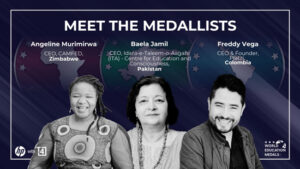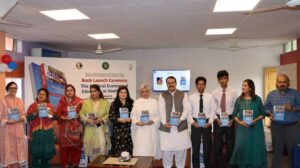Baela Raza Jamil – an educationist with a vision
In an exclusive interview with You! Baela Raza talks about her work which revolves mostly around education…
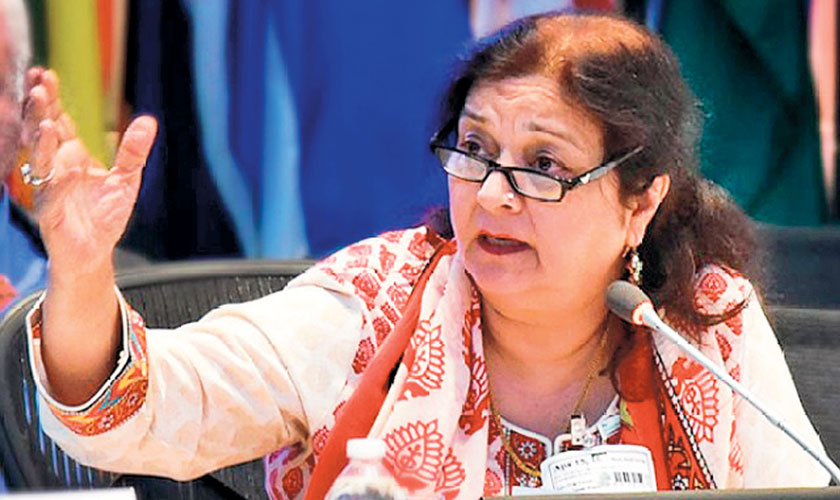
Baela Raza Jamil, CEO of Idara-e-Taleem-o-Aagahi (Centre for Education and Consciousness) is a public policy specialist and an activist at heart. She is the former Technical Adviser to the Federal Ministry of Education, Pakistan. Baela has worked with provincial and federal governments advising on education sector reforms and policies embedded in right to education, sector wide approaches from early childhood development to post-secondary education, inclusion, workforce initiatives, public private partnerships, innovations and financing. She leads the citizens’ accountability learning initiative, the Annual Status of Education Report (ASER) Pakistan. She is the founder of the ‘Children’s & Teachers’ Literature Festival’, both are nationwide social movements. Baela is a member of multiple national and international education forums. She is a Commissioner to the International Commission on Financing Global Education Opportunity (Education Commission) chaired by Gordon Brown. Baela serves on several advisory platforms globally, UNESCO, Global Alliance to Monitor Learning (GAML) at the UNESCO Institute of Statistics (UIS); Global Business Coalition for Education (GBC Ed); People’s Action for Learning Network (PAL Network) and the Right to Education Initiative.
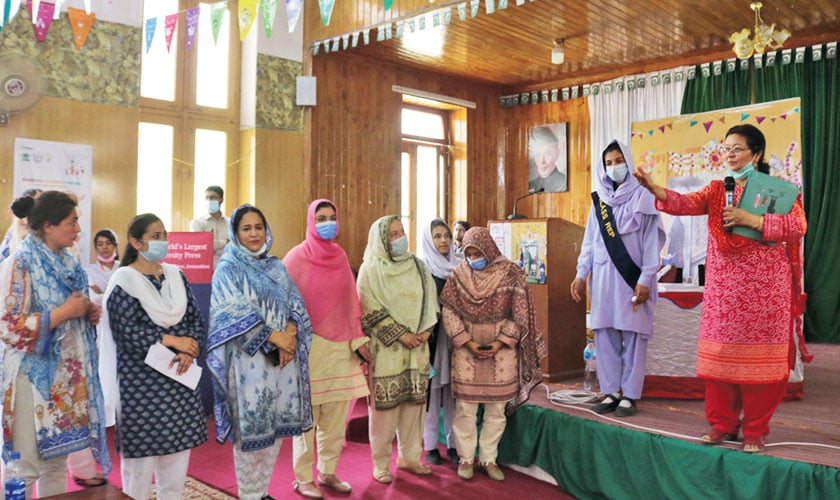
Handing out books to teachers at PLF – GB She is also the recipient of multiple awards such as the prestigious Aagahi Award, Lifetime Dedication to Advancement of Education Award presented by Pakistan American Chamber of Commerce (PACC), Guest of Honor on 30th Anniversary of UN convention on the Rights of the Child and many more. In an exclusive interview with You! Baela Raza talks about her work which revolves mostly around education…
You! Most of your work has revolved around education and cultivating reading habits in children. Why is this cause so important to you?
Baela Raza: A child’s reading skills are important to their success in school as they will allow them to access the breadth of the curriculum and improve their communication and language skills. At the same time, reading is also important for children in their lives beyond school as they help them build imagination while having fun and opening doors to all kinds of new worlds. For me ‘reading’ is a fundamental skill for brain development, a language that gives agency to the child, students and all citizens – reading is a capability that also gives entitlements to grow and transition from one stage of learning to another. In fact, reading is also the basis for numerical literacy and all literacies. Unfortunately, the importance of reading is undermined in Pakistan. Schools, teachers and parents fail to realise the impact it can have on children and their long-term success. It is perhaps for this reason that I decided to work on this area and encourage children to read.
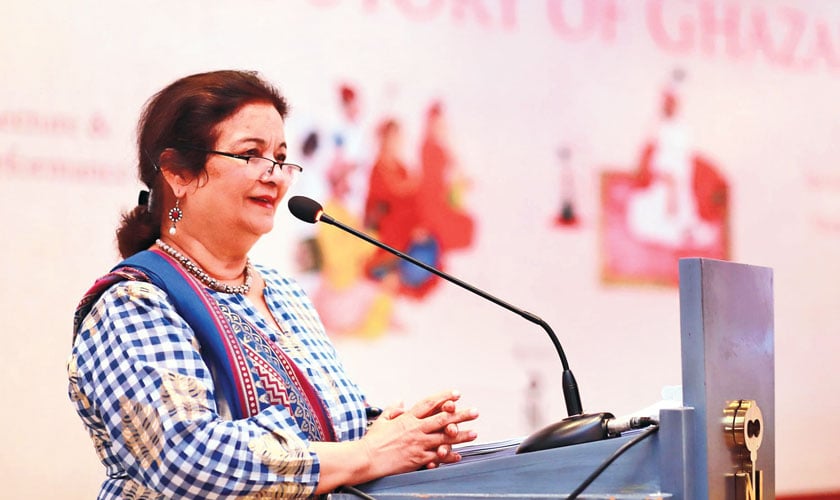
You! What motivated you to begin ‘The Children’s Literature Festival’?
BR: To encourage children to read and cultivate reading habits in them, we at, Idara-e-Taleem-o-Aagahi, conceived the idea of Children’s Literature Festival (CLF) and hosted it in various cities around Pakistan in a bid to enable children to access interesting reading material and turn them into lifelong readers. The idea of the festival was to engage with meaningful higher ordered learning without stress by inculcating 5 Cs (Critical thinking, Creativity, Communication, Collaboration and Character) and the joy of reading without any discrimination to all school systems in Pakistan.
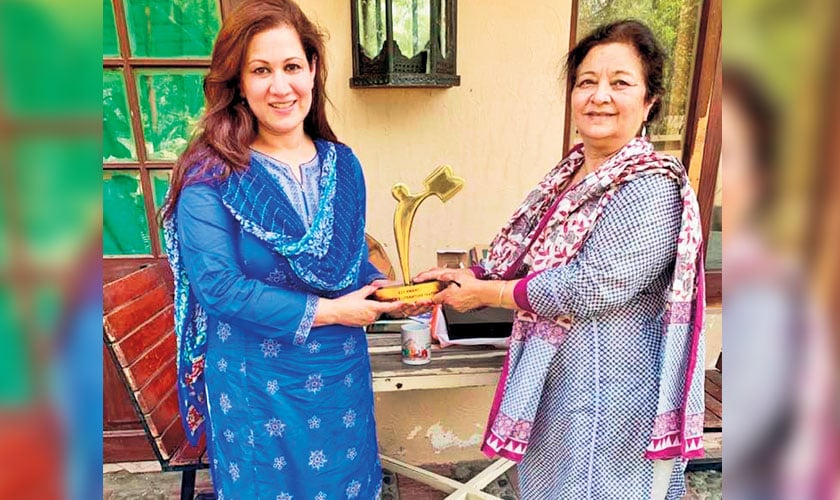 Ms Baela handing the CLF award to Shahdab Zeest Hashmi
Ms Baela handing the CLF award to Shahdab Zeest Hashmi
You! How far have you come since the first CLF? Do you feel like you have been able to accomplish what you had planned?
BR: In ten years, CLF has sustained a momentum on its own due to a lot of good will from all stakeholders including the government, education industry, Civil Society Organisations (CSOs) and development partners. It has evolved over the years with more than 250 resource persons/institutions with 16 solid learning strands. Now being referred to as the Pakistan Learning Festival, it is a hybrid event with digital outreach and curation. Today, the CLF is not just about one-off events, it has grown into publications. Young Authors Awards; online book reviews – innovative digital kutub khanay or libraries for far flung communities with books, tablets, board games, maps and Kitab garee etc.
You! Why is reading so important for children?
BR: A child’s reading skills are important to their success in school, work, and life in general. And it is possible to help ensure your child’s success by reading to them from an early age. Reading is the anchor skill for all our children to gain access to all other literacies. This positive habit lets them explore the world – people, places and events. All these are outside of their personal experiences. They get exposed to other ideas and beliefs different from what they are currently exposed to. It opens their minds to other realities that exist in this world. Without a doubt, reading is the best form of education.
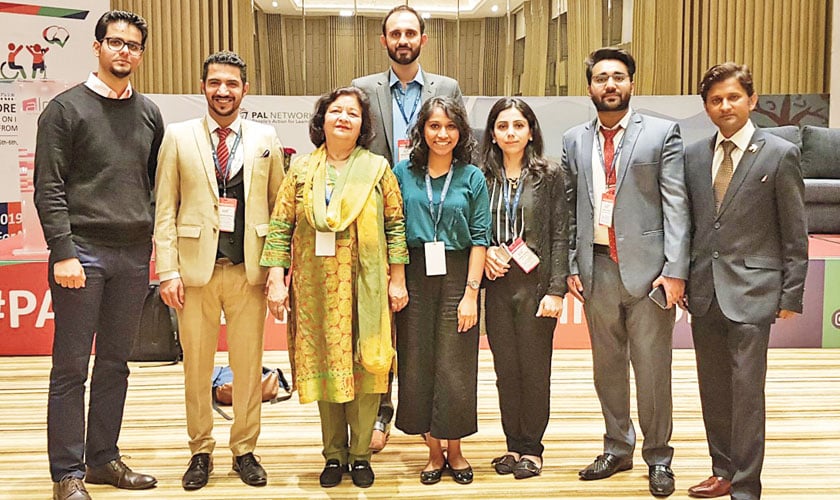 ASER Team
ASER Team
You! What role can parents play in inculcating reading habits in children?
BR: Children in Pakistan spend a bulk of their time at home with parents and caregivers. This even more so, when the children are growing up and have not begun going to school. Early years are when children develop their habits and are more likely to become readers if their parents bring books home and read them. This puts more responsibility on parents than teachers because teachers have limited time during classes and must cover the set curriculum as well. Parents should actively play a role and put in effort to set a reading time and read with their children. During Covid, it has been heartening to see that parents have been engaging with children through reading. It has been noticed that the pandemic gave parents a chance to spend time with their children, do activities with them and read together (ASER 2021). 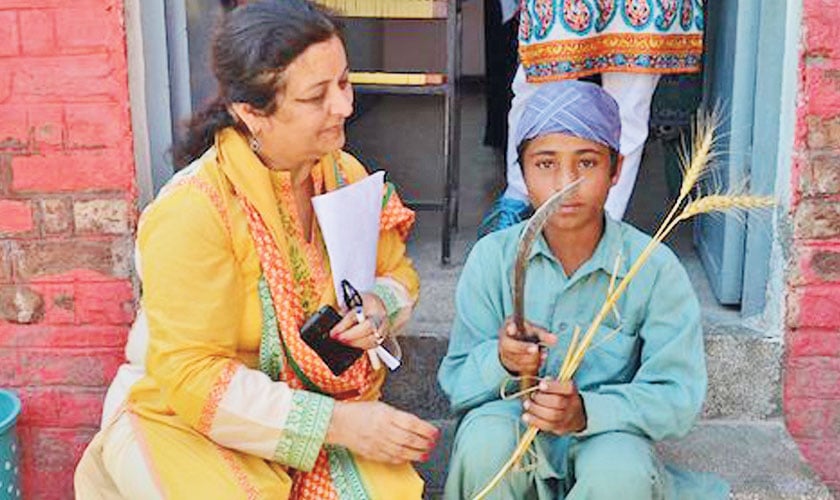
You! You are one of the pioneer activists working in the education space in Pakistan. What were some of the greatest challenges that you faced?
BR: This cause is very close to my heart but I have faced lots of challenges along the way. The biggest one being these local politicians who possess a negative mindset for schooling and education, calling it a waste of time. It is rather unfortunate that in many small towns, politicians look at schools as spaces for many activities, which may not necessarily be linked to learning. For instance, many of them view schools as real estate properties that could be benefited from. There are schools that are still seen as places in front of which garbage dumps are created. Ever since I began my work, I realised a lot of people, even those with power, get intimidated by education and the prospect of educating future generations. I realised this when once a local nazim drew a gun at me and claimed that he wanted to kill me. The fact that this happened in the Walled City of Lahore is just as scary as the incident itself. I controlled myself and later had to send a letter of apology saying my mission is to reclaim education and learning not to wield my ego! Also, in very early phases of my work in the 1990s, I received threats from multiple brick kiln owners when we were setting up schools for bonded labourers.
You! What have been some of the highlights of your journey?
BR: Besides the CLF, there have been several highlights of my career including the ‘Siyani Sahelian Project’ which works on advancing action for adolescent girls through crafts interventions for accelerated learning and service delivery and capacity building of out of school and highly marginalised adolescent girls (aged 9-19). It also works towards overcoming social and economic barriers through the acquisition of basic education or literacy and numeracy skills, enabling them to transition to secondary school, gain certified skills for decent work and livelihoods with life skills. The ‘Chalo Parho and Barho’ project is another highlight of my career, which was envisioned to work on mathematics and reading for children of primary school going age. The aim of these classes would be to build a strong base among children in learning language (reading, writing and comprehension) and arithmetic (number recognition, addition-subtraction, and multiplication-division). Making books available on the Literacy cloud (Room to Read) for the first time in Urdu was another achievement that has made an impact. We made animated stories available on TeleSchool mapped to the National Curriculum. Through various efforts, I was also able to set fungible budgets under one head at the school level, which essentially means no more science funds, late entry funds, exam funds as separate account but all these falling under one school fund to be used for betterment of children and schools.
You! What are some of Pakistan’s greatest challenges related to the field of education?
BR: The biggest challenge is the government’s inability to live up to its scaled-up responsibility. The supply is always slow and cannot live up to the demand. The resources are very limited and not always utilised right. With all these challenges, Civil Society Organisations (CSOs) are limited in their scope. Governance of education is also another challenge and the government itself is unable to manage it. The most effective way to overcome these challenges is by adding more resources to enable better supply side actions and governance and this requires the government to look at education as a priority area. You! Why is it important for women of this generation to work and have financial independence and their own identity? BR: It is very important to keep stretching the boundaries and the hours of the day – in a pretty much man’s world – and doing it all gracefully. It takes a lot of effort but it’s worth it in the end to have one’s own individuality. Never be afraid of having coherent but diverse identities that enrich you. Have a voice with capabilities and entitlements. And most of all, be ready to swap roles and have a partner who can say it is okay to be a trailing spouse.
You! How do you strike work life balance?
BR: For me, striking work-life balance is about becoming an artist, and designing ratios that are not divisive but cumulative; one-third of my time goes to myself and my growth, another third goes to family and the remaining third is for the society. This is easier said than done but having a mind that is 100 per cent application-oriented, a heart that cares and a spirit that is spontaneous is always helpful!
You! What message do you have for young women who look up to you?
BR: Just believe in yourself! Work hard and be kind to yourself. Refuel so that you can help others and a mission-fuelled journey where the latter is important. The end goal is an outcome no matter what.
Source: THE NEWS


